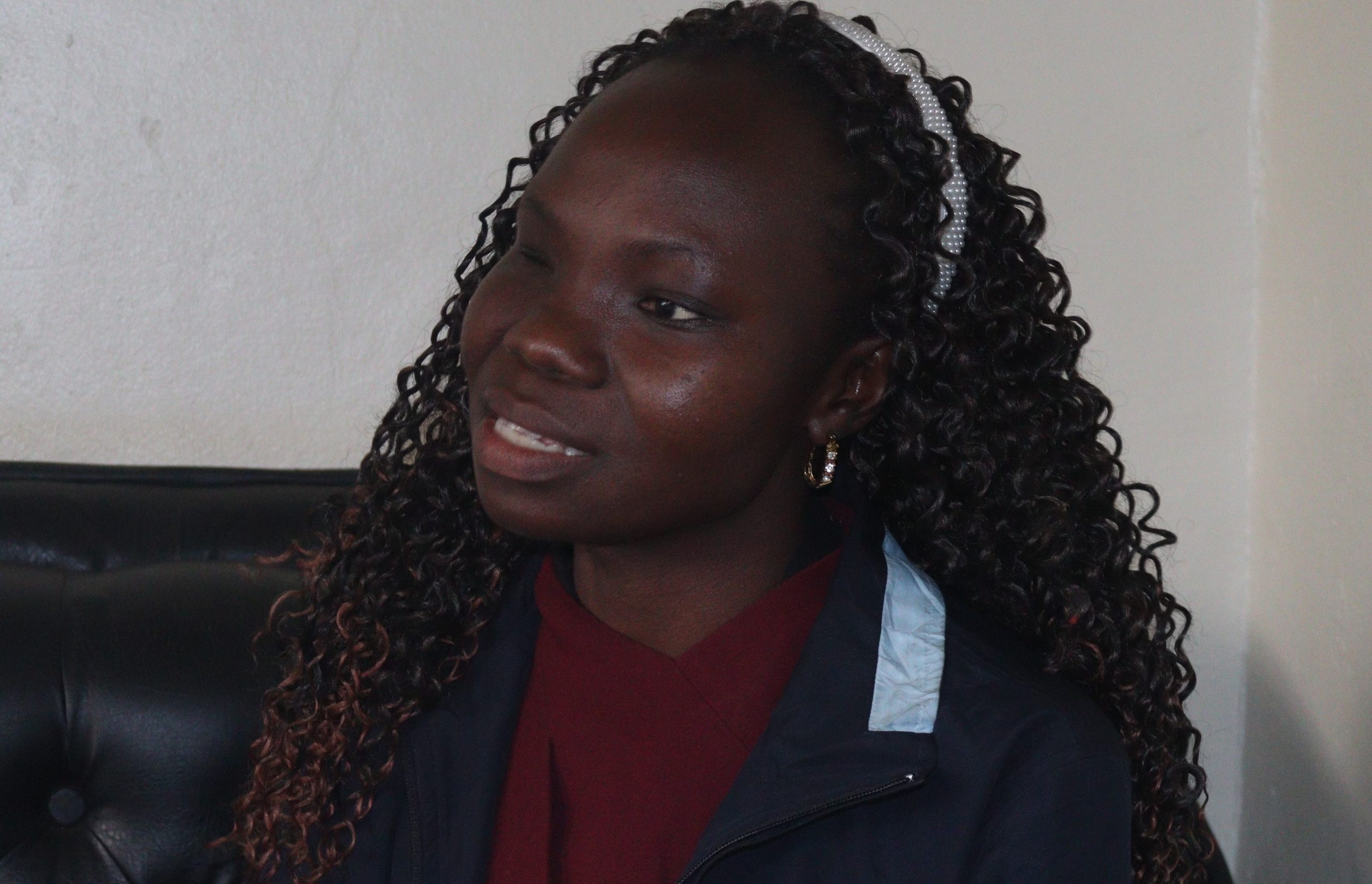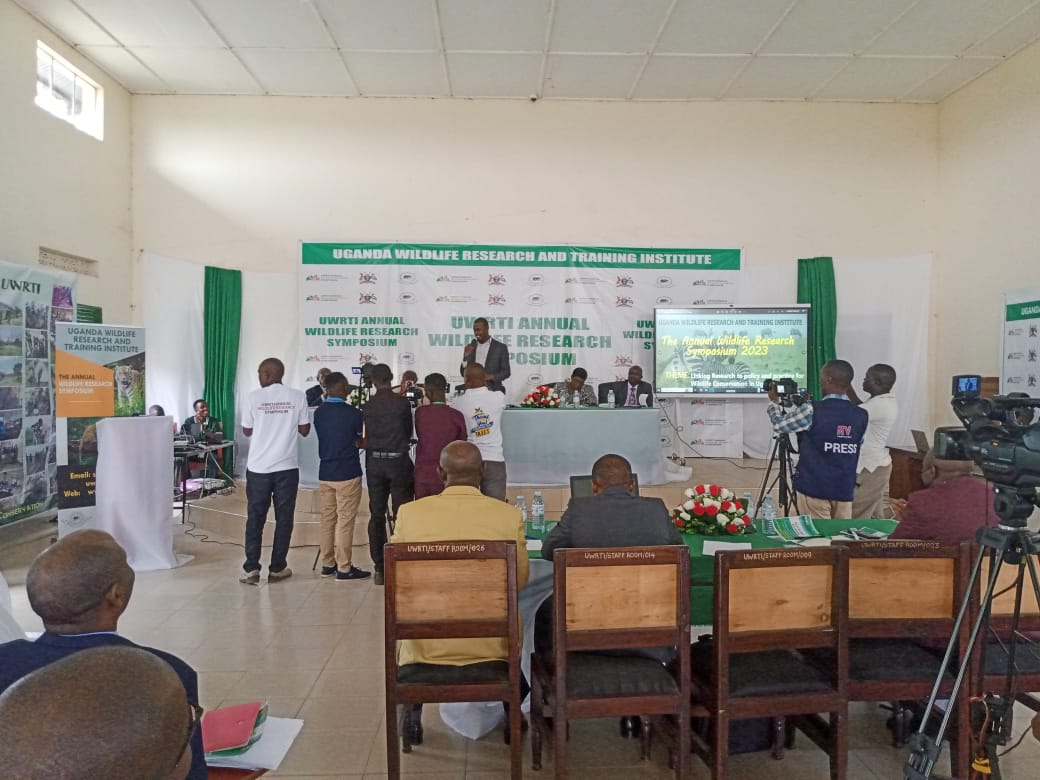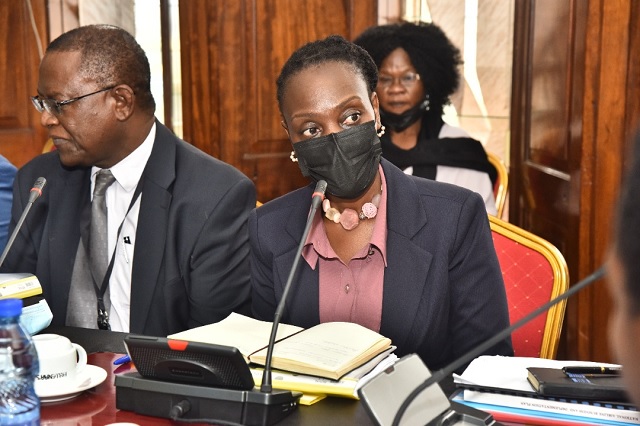Higher Institutions of Learning Put Up New Efforts to Attract Male Nursing Students
 Richard Masereka is changing his career path from a driver to nursing. Masereka opted to join the course after considering the growing demand for nurses across the world.
Richard Masereka is changing his career path from a driver to nursing. Masereka opted to join the course after considering the growing demand for nurses across the world.
Despite being a professional driver from Kira Motors, he chose to enroll as a student at Rwenzori School of Nursing and Midwifery-RSONAMKA. Masereka considers nursing a humanitarian calling, something he is passionate about.
He did not mind being scorned by friends who discouraged him from pursuing nursing, a course considered inconsequential for the male.
Resty Namenya, a fourth year student of Nursing Science at Mountain of the Moon University (MMU) notes that gender disparities in nursing do not originate in nursing institution but are shaped by social biases that often influence student’s choices.
But with introduction of nursing courses at a degree level, Namenya says more boys are joining the course since majority pursue science subjects in their secondary level education. Namenya encourages institutions to put male faces at the front when advertising for nursing courses to make the course more socially acceptable for males.
At the moment, numerous studies including one published by frontiers of psychology in 2023 showing that that male nurses often find themselves navigating social bases, from being labelled as “failed doctors” to being denied to perform certain medical roles.
However, institutions of learning in Rwenzori region are putting up strategies such as targeted student enrolment and tackling social perceptions to increase male enrollment for nursing courses. For example, Rwenzori School of Nursing and Midwifery, has prioritized career guidance on its calendar to guide and expose learners to the various opportunities available in the nursing course.
Jonan Masereka, the clinical instructor at the school says such initiatives are likely to dissolve historical social stereotypes in the Rwenzori region where nursing is thought to be a course reserved for females.
Masereka quotes an example from 2022, when a parent pulled his son out of the school after learning that he was pursuing a certificate in Nursing and midwifery. It took the school administrators to convince the parent on the benefits of the course and the school has since responded to such incidents by creating special programs meant to highlight the importance of male nurses in the medical care.
Globally, societal expectations place psychological stress on male nurses, discouraging thousands of able-young people from pursing nursing and the other related courses.
The school has an enrolment of 536 leaners and of these 186 are males, the numbers Masereka says have gradually been growing since the institution set out community programs targeted at encouraging males to joining nursing and midwifery courses.
“We have been moving to different secondary schools, purposely to speak to students on career related matters, this acts as a platform to open students understanding ..” Masereka noted
Annet Nakawunde, the Academic Registry for the Nursing Fraternity Lower Level at FINS Medical University in Fort Portal Tourism City agrees that stereotypes have over the years discouraged boys from pursing nursing with majority only taking up the course as a second priority.
But she says the University appreciates the over growing demands in the health care and as such they are incorporating modules in the nursing curricula that address the unique challenges and opportunities encountered by the male nurse.
She urges that such curricula prepare the male students better to know what to expect and how to deal with it. In the school’s mentorship programs, boys are highly encouraged to take on nursing programs that require both mental and physical needs such as in areas of ICU, dialysis and emergencies.
Daniel Tugume, a lecturer in the department of Nursing and Midwifery at Mountains of the Moon University-MMU in Fort Portal says the enrolment of male nurses has been increasing over the years, thanks to the university outreach program that involves meeting secondary school students and other community engagements throughout the country.
He also noted that the University is also taking on diverse nursing programs to cater for different student and parent interests and career goals including specialized areas like mental health.
Tugume considers the University’s competitive fee structure a plus in the desire to have the male join the nursing profession.
Charles Ajuna a student of nursing at MMU says the university is providing male and female students the same training and opportunities during their learning and this makes all students equal.
However, he has heard peers who avoid selecting gynecology and obstetrics as their specialty with a feeling that these are more of female areas. Ajuna notes that the field work experience from the regional referral hospital is giving learners a room to meet and interact with other nursing professions.
Saimon Bikeke, the director Umberal for Journalist in Kasese-UJK says many female patients express discomfort with male nurses, especially in intimate care, leading to exclusion from certain specialties such as obstetrics.
However, he applauds institutions such as Aga Khan University through the Graduate School of Media and Communications who often train journalists and civil society members in areas such as Gender Responsive Reporting and Communications.
The Director Great Lakes International Hospital in Fort Portal, Gloria Mesiku, is proud of the four male nurses at the hospital who she regards as multi-skilled and ever present.
She says the facility offers a supportive environment for its male nurses, promoting inclusivity and addressing patient biases on male nurses.
Despite the historical underpinnings, today men remain an integral part of nursing, showing the same compassion and skills as their female counterparts.
This story was done with support from Aga Khan University through the Graduate School of Media and Communications under the Gender Responsive Reporting and Communications project.
Story filled by; Basaija Iddi



